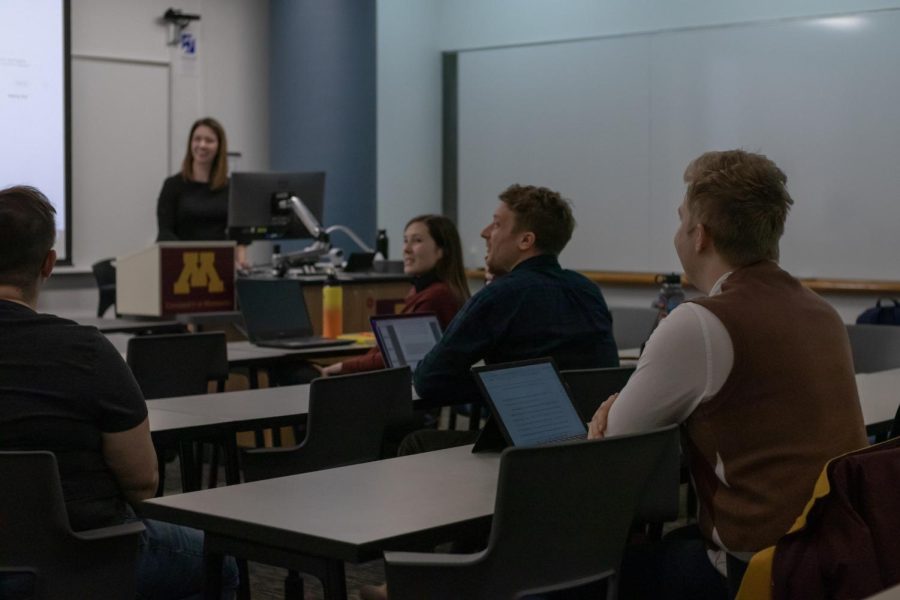There have been 67 mass shootings in the U.S. since the start of the new year, according to Gun Violence Archive, a non-profit that tracks gun violence incidents. The most recent mass shooting happened Monday evening on campus at Michigan State University, and as of Monday night, officials reported three people dead and five others injured.
In the wake of increasing gun violence, a new clinic at the University of Minnesota Law School kicked off in January as the first law clinic in the nation to fully focus on gun violence prevention through litigation.
Megan Walsh, director of the clinic and visiting assistant clinical professor of law, said she came up with the idea of a gun violence prevention clinic and presented it to the Law School in early 2022. Walsh said she has spent the past three years putting the clinic together.
The clinic will be partnering with the Minnesota Attorney General’s office on cases and students will work pro-bono with clients, according to Walsh. Clients will range from people who have survived gun violence to those that have been harmed by gun sales, practices or manufacturing.
“Ideally, we’re going to be making relationships with people in communities that are disproportionately affected by gun violence and trying to find out what will help them,” Walsh said.
Walsh said she has been working in litigation for a number of years. She noticed there are not enough lawyers working in gun violence prevention or enough law schools teaching students about the Second Amendment.
“This was my dream,” Walsh said. “I’m hoping not just to bring litigation, but just to bring more attention to this issue.”
Walsh said she wanted this clinic to start in Minnesota because there is not a lot of gun violence litigation work occurring in the Midwest.
“The law is changing very rapidly around the Second Amendment, around what government regulation can do related to firearms,” Walsh said. “There just aren’t enough people kind of thinking creatively about how litigation can be used to advance the gun violence prevention movement’s goals.”
Students in the clinic say they are excited to get started on cases
The current generation of law students look at gun violence through a different lens because many grew up with and experienced gun violence in their schools and communities, according to Walsh
“They want to be working on these issues,” she said. “They want to be learning about these issues, and law schools are not providing that enough.”
Chad Nowlan, a second-year law student at the University, said he wanted to join the clinic after he completed an internship for the Brady Center for Gun Violence Prevention last semester. He said he enjoyed his work on a national level at Brady but likes that the clinic focused on more local situations.
Nowlan said after personally experiencing gun violence in his community when he was in high school, he is excited to connect with clients to create resolutions to combat the issue.
“No amount of money or anything like that can ever replace harm or undue trauma that people experience,” Nowlan said. “My hope is that what this can lead to is policy changes and changes in regulations.”
Nowlan said he wants to put an emphasis on firearm regulation because handguns can be used for suicide, homicide and domestic violence. Nowlan said he believes the media does not talk about this type of violence as often as they do mass shootings.
“Mass shootings, understandably, are extreme tragedies that warrant all the attention they get,” Nowlan said. “But I think sometimes what’s left out of that narrative is just the prevalence of firearms and the problems with such free accessibility to them.”
Alex Barkley, a second-year law student, said this clinic caught their eye because they wanted to learn more about the Second Amendment.
Barkley said they are benefiting from learning about Walsh’s experience as a litigator and how to navigate the field.
“It’s been really nice to see her as a professional model of how you can take the topics that you care about and figure out how to scaffold your professional life around them,” Barkley said.
Students received their case assignments last week and will be working in pairs on them, Barkley said, and they are excited to get started.




















